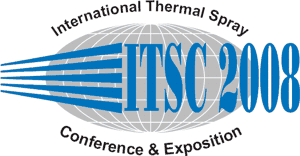
|
1351 |
|
Tuesday, June 03, 2008, Room 04 10:10 AM Corrosion Protection 1 Corrosion protection through thermal sprayed coatings including cathodic and high temperature corrosion, coating of large areas for offshore facilities and comparable applications |
|
Corrosion protection of municipal solid waste incinerator superheaters by HVOF thermal spray coatings |
|
Sergi Dosta* / Thermal Spray Centre (CPT) - Universitat de Barcelona, SPAIN J.M. Guilemany / Thermal Spray Centre (CPT), Spain M. Torrell/ Thermal Spray Centre (CPT), Spain J.R. Miguel/ Thermal Spray Centre (CPT), Spain |
|
Corrosion is a very important problem in the Municipal Solid Waste Incinerator (MSWI) superheaters. This problem causes the plant stops and tube replacements, promoting the loss of energy generation rate. The main corrosion agent is the chlorine deposits. HVOF coatings have been sprayed to improve corrosion resistance of the superheaters inside the MSWI boilers. Inconel 625 and Hastelloy C22 alloys have been sprayed as a powder feedstock material. The spray process has been analysed by a Spray Watch system that allows carrying out the temperature and velocity measurements of the particles in flight in order to optimise the spraying process. The produced coatings have been characterised by Scanning Electron Microscopy (SEM) and X-Ray Diffraction (XRD) to evaluate the porosity and oxidation produced in the spray process. Laboratory oxidation test and in situ service at the MSWI have revealed the formation of Cr2O3 and Fe2O3 as corrosion products as well as NiO as more resistance oxide. Microanalysis by Energy dispersion Spectroscopy (EDS) composition profiles have been used to evaluate the penetration of the corrosion front inside the coating. The Nickel alloys show a good resistance in aggressive environment test and can be a good solution for the corrosion problems in the superheater tubes in MSWI. |